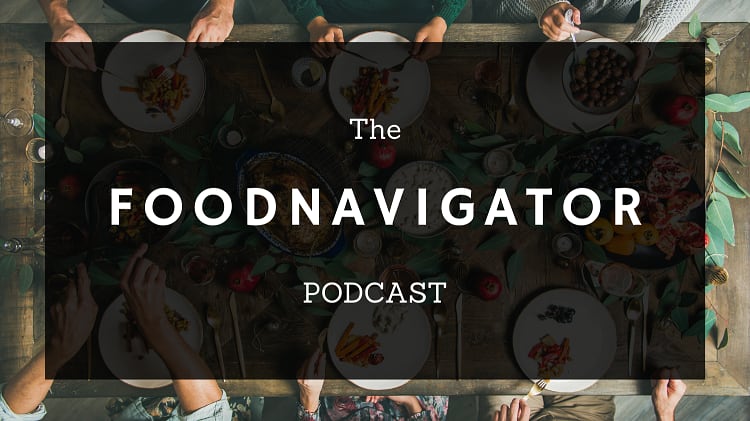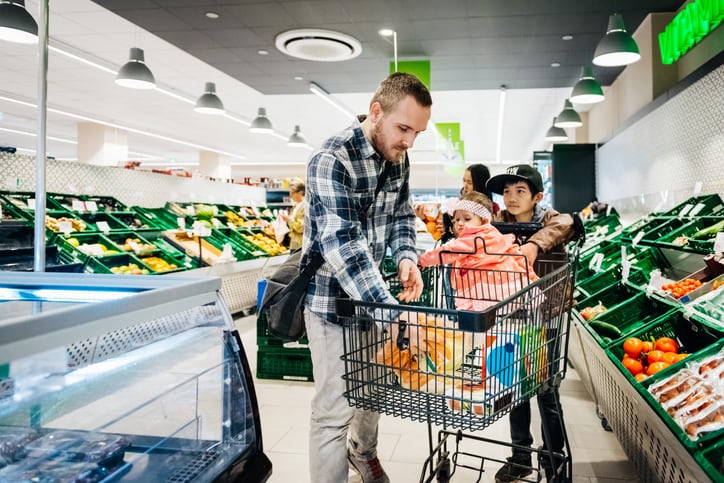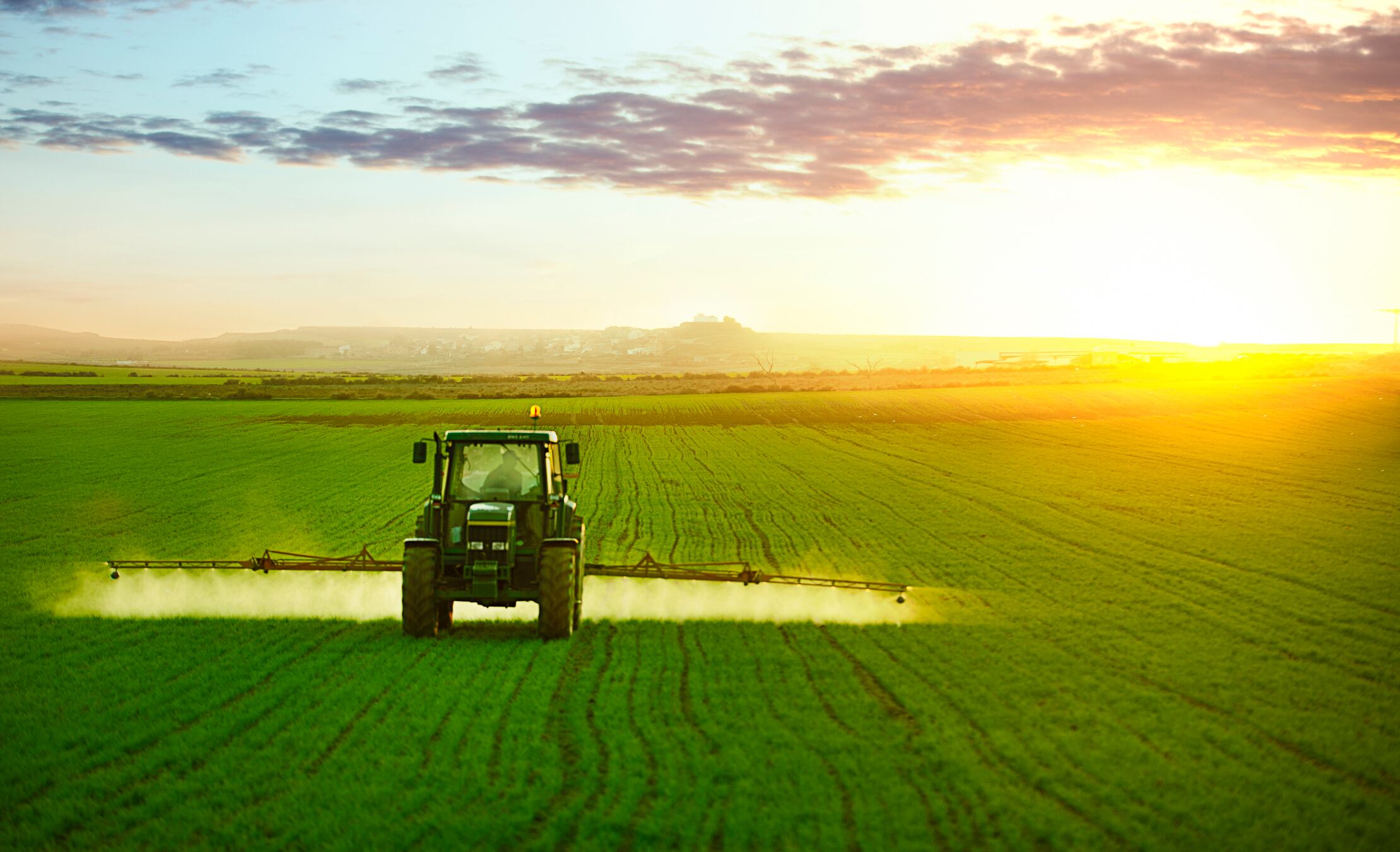Consumer prices reached a new 40-year high of 9.4% in the UK, the latest figures from the Office for National Statistics (ONS) reveal. Inflation is also at record levels in the 19 countries that use the euro, hitting 8.6% in June, as rising global energy costs have inflated the cost of oil, gas, food, and imported goods since the war began in Ukraine. Analysts expect food prices to rise further.
Commenting on the inflation figures for June, ONS chief economist Grant Fitzner said: “Annual inflation again rose to stand at its highest rate for over 40 years. The increase was driven by rising fuel and food prices, these were only slightly offset by falling second-hand car prices.
“The cost of both raw materials and goods leaving factories continued to rise, driven by higher metal and food prices respectively. These increases saw raw materials post their highest annual increase on record, with manufactured goods at a 45-year high.”
The ONS figures come after separate data from Kantar warned that grocery prices continue to climb. Supply chain issues have driven costs up across the industry and like-for-like grocery price inflation now stands at 9.9% over the past four weeks, it revealed.
Fraser McKevitt, head of retail and consumer insight at Kantar, said: “Grocery prices continue to soar to near record-breaking heights and have jumped by another 1.6 percentage points since last month. This is the second highest level of grocery inflation that we’ve seen since we started tracking prices in this way in 2008 and we’re likely to surpass the previous high come August. With grocery price inflation at almost 10%, people are now facing a £454 increase to their annual grocery bills.
“All this means that people will be feeling the pinch during our first restriction-free summer since 2019. Taking a barbecue as an example, buying burgers, halloumi and coleslaw for some al fresco dining would cost you 13%, 17% and 14% more than it would have this time last year. Buying enough for a typical family barbecue, shoppers will have to put aside £9.94 rather than the £9.01 they spent last year.”
Discount retailers and own labels are taking advantage
As prices rise, shoppers are adjusting their behaviour. A winner in the situation are own label products. “People are increasingly turning to own-label products to drive down the cost of their weekly shop. Supermarkets’ own lines are growing by 4.1% this period, while sales of branded items have fallen by 2.4%,” continued McKevitt. “It’s a complex picture and the grocers are busy negotiating with their suppliers to mitigate impact at the tills as far as possible. We’ve seen this play out in the headlines in recent weeks, with some well-known brands temporarily disappearing from supermarket shelves over pricing disputes.”
Discount retailers are also winning. Lidl was the fastest growing supermarket again this period, with sales up by 13.9%. Aldi was also in double-digit growth, boosting its sales by 11.3% compared with last year. McKevitt commented: “Over 67% of people in Britain shopped in either an Aldi or a Lidl in the past 12 weeks, with 1.4 million additional households visiting at least one of the discounters in the latest three months compared with last year. Both retailers reached a new market share high over the past three months. Lidl now holds 7.0% of the market while Aldi climbed to a 9.1% share.”
Healthy eating is being sacrificed
Separate research added that Brits are struggling to eat healthily because of the cost-of-living crisis. A survey of 2,000 adults carried out by Meatless Farm found four in five (84%) are concerned about the increasing cost of food and are having to significantly change their food shopping and eating habits with almost two thirds (62 percent) buying less fruit and vegetables, and lower quality food to get by.
With 8 in 10 (80 percent) forced to make changes to how we shop and eat, the research reveals how the cost of living is shaping the nation’s shopping baskets - exotic fruits such as grapes, melon, pineapple, and mango top the poll of what’s most likely to get cut followed by avocados and berries. Even one in five (20 percent) millennials are ditching the popular avocado fruit from their shopping lists.
Nearly half (44 percent) are worried about how they will afford to eat healthily with shoppers forced to lower their standards - two in five are making the swap to cheaper quality meat (40 percent), frozen (45 percent) and tinned (39 percent) food.
A third (32 percent) admit they will fill up on pasta and rice, followed by baked beans (26 percent) and potatoes (25 percent) instead of fresh fruit and vegetables.
Other changes include making better use of leftovers (32 percent), home cooking (30 percent), shopping at cheaper supermarkets (31 percent) or choosing own label and reduced food (35 percent) and cutting out “treats” such as chocolate and crisps (35 percent). Over a third of us (38 percent) will also be enjoying fewer takeaways and meals out to reduce spending.
Morten Toft Bech, Founder of Meatless Farm said: “Cutting down on fruit and veg and replacing this with carbohydrates and cheaper quality meat is not a viable option for the future of our nation’s health, and the findings in this study are concerning for both the nutrition of our nation and the environment.
“The cost-of-living crisis has presented a real red flag for the urgency for a food system that encourages a more balanced mix of affordable quality protein sources and plant-based food so that the nation’s health is not set back.”
Consumers downgrading may increasing concerns about food quality
The cost of living crisis also risks eroding trust in the food sector, revealed the Trust in Food index from certification programme Red Tractor.
Together with market research firm YouGov it polled over 3,500 adults. Four in 10 admitted to not trusting supermarkets, believing the quality of food being sold is declining. Despite many value ranges being assured to high UK specifications, the survey found that consumers switching to these products assume production standards to be weaker.
“In 2021 we found high levels of trust in British food (84% of UK consumers),” said Rebecca Miller, Head of Communications, Red Tractor. “In 2022, while confidence in British food remains high and is still more trusted than anywhere else in the world, it has fallen significantly; especially amongst lower-income families.”
Shopping and eating habits are changing owing to the impact of global events and the cost-of-living crisis, she said. “Almost half of people have changed what they buy to feed their families, and people in lower income households are buying less meat, fruit and vegetables. This is a worrying trend for the health of the nation, but also a real challenge for the food sector, as shoppers believe that as circumstances force them to trade down to value ranges or away from brands, they are buying food produced to lower food safety and animal welfare standards… There is work to do as an industry to tackle this misconception.”





